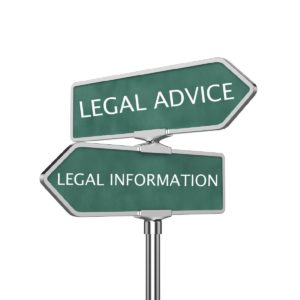We have previously discussed a lawyer’s ethical duty to understand social media. Such an understanding is necessary to provide competent representation to clients.
So how does that translate in the real world? How should lawyers advise clients with regards to their social media accounts?
Keeping in mind that each jurisdiction may differ, here are some general ground rules:
- Lawyers “should advise clients about the content of their social media accounts, and their obligation to preserve information that may be relevant to specific proceedings.” (Phila. Bar Assoc. Op. 2014-5)
- Lawyers should advise clients “of the legal ramifications of existing postings, future postings, and third party comments, if those postings could be relevant and material to the client’s legal matter.” (North Carolina Bar Assoc. Formal Op. 5)
- Lawyers may advise clients to set to private or change security settings to the highest level of restricted access. (North Carolina Bar Assoc. Formal Op. 5; NYCLA Ethics Op. 745; Phila. Bar Assoc. Op. 2014-5)
- Lawyers may advise clients on what they should or should not post going forward, so long as they do not advise clients to post false or misleading information. (NYCLA Ethics Op. 745; Penn. Bar Assoc. Formal Op. 2014-300)
- So long as there is no violation of law regarding preservation or concealment of evidence, lawyers may advise clients to remove or take down content from their social media pages. (see below)
Penn. Bar Assoc. Formal Op. 2014-300: “A lawyer may … instruct a client to delete information that may be damaging from the client’s page, provided the conduct does not constitute spoliation or is otherwise illegal, but must take appropriate action to preserve the information in the event it is discoverable or becomes relevant to the client’s matter.”
North Carolina Bar Assoc. Formal Op. 5: “If removing postings does not constitute spoliation and is not otherwise illegal, or the removal is done in compliance with the rules and law on preservation and spoliation of evidence, the lawyer may instruct the client to remove existing postings on social media. The lawyer may take possession of printed or digital images of the client’s postings made for purposes of preservation.”
NYCLA Ethics Op. 745: “Provided that there is no violation of the rules or substantive law pertaining to the preservation and/or spoliation of evidence, an attorney may offer advice as to what … what may be “taken down” or removed.”
Phila. Bar Assoc. Op. 2014-5: A lawyer may not instruct or knowingly allow a client to permanently delete/destroy a relevant photo, link, text or other content. However, a lawyer may “instruct a client to delete information that may be damaging from the client’s page, but must take appropriate action to preserve the information in the event it should prove to be relevant and discoverable.”
But be careful! See, for example:
Ga. Rule of Prof’l Conduct 3.4(a): A lawyer shall not “unlawfully obstruct another party’s access to evidence or unlawfully alter, destroy or conceal a document or other material having potential evidentiary value. A lawyer shall not counsel or assist another person to do any such act.”
Virginia attorney disciplinary opinion (2013): Attorney was suspended for five years for instructing his client to delete photos from his Facebook page and intentionally withholding from the trial court emails instructing the client to delete the photos. The attorney was also sanctioned more than $700,000 by the trial court for his conduct.







